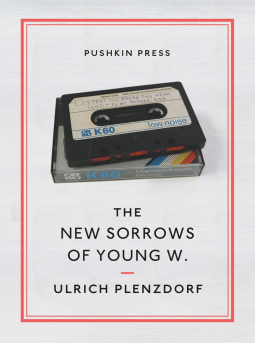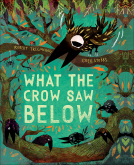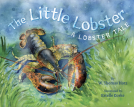
The New Sorrows of Young W.
by Ulrich Plenzdorf
This title was previously available on NetGalley and is now archived.
Send NetGalley books directly to your Kindle or Kindle app
1
To read on a Kindle or Kindle app, please add kindle@netgalley.com as an approved email address to receive files in your Amazon account. Click here for step-by-step instructions.
2
Also find your Kindle email address within your Amazon account, and enter it here.
Pub Date Sep 15 2015 | Archive Date Jun 15 2015
Pushkin Press | Pushkin Collection
Description
Advance Praise
Available Editions
| EDITION | Other Format |
| ISBN | 9781782270942 |
| PRICE | $16.00 (USD) |
Average rating from 13 members
Featured Reviews
 Bookseller 45580
Bookseller 45580
I liked how the dead W, inserted his opinions about what was being said about him. Interesting how he and his father differed so very much. A good, quick read.
 John L, Reviewer
John L, Reviewer
Or not so new now, as this is a reissue of an East German modern classic from the early 1970s. Edgar is a young lad, het up on reading two books – one of them, of course, ''Catcher in the Rye'' – and het up on a lovely, engaged Kindergarten teacher whose playground abuts the abandoned allotments where he's squatting. He's also dead – no spoiler – and talking to a collective readership/audience (always asking rhetorical questions of us 'guys') and answering back on the reported dialogue of his absent father's interviews to learn about the man Edgar was slowly becoming. There's some appeal in seeing his verdict on how he tried for the teacher, and tried to fit in and work well at work – even if what his father is told is quite, quite different. To the average reader the sehr literary parallels between this and the Goethe near-namesake will not be evident, but it's an amusing enough, quick little novel, with some very memorable scenes, and just enough in the manner of confusing delivery to give the reader a satisfaction of staying with it beyond the opening exchanges.
 Deborah C, Reviewer
Deborah C, Reviewer
The New Sorrows of Young W. is a modern-day (sort of) retelling of Goethe's The Sorrows of Young Werther, which I had not read before but have now read. Goethe's work is a classic epistolary novel in which Werther tells the tale of his unrequited love for an engaged girl, a tale which ends with Werther's suicide. Ulrich Plenzdorf's version starts with the same structure (here, a series of tape-record "letters") and basic premise (young man dies after an unsuccessful love affair) but adds a new dimension by having the deceased Edgar Wideau address the reader directly. Edgar's voice is engaging and, at times quite funny; I enjoyed the juxtaposition of the "real" Edgar against the skewed perspective his father gleans from listening to Edgar's tapes and talking to his friends. The comparison is bittersweet; because Edgar's father abandoned him when he was five and seeks to know him only after he is dead, he ends up understanding less than we complete strangers who never knew Edgar in life. Edgar is far less pathetic than Werther; I don't miss Werther at all, but I think I would have liked the adult Edgar.
I received a free copy of The New Sorrows of Young W. through NetGalley in exchange for an honest review.
 Mandy J, Reviewer
Mandy J, Reviewer
Another interesting title from the wonderful Pushkin Press (how much we are indebted to them for bringing so many foreign titles to our notice!). This time it’s a touching coming-of-age story about a rebellious teenage dropout from East Germany, Edgar Wibeau, who recounts his story from beyond the grave, using Goethe’s classic The Sorrows of Young Werther to express himself. This is a conceit that I felt worked admirably and added to the depth of Edgar’s characterisation. We also get to hear from the people Edgar has met when his estranged father sets out to interview them to find out exactly what happened during his son’s last days. It’s an original and unusual book set against the background of the restrictive East German state, which adds another layer to Edgar’s rebellion. The translation seemed excellent to me, and I very much enjoyed this short exploration of a young man’s troubled inner life.
 Andrija F, Educator
Andrija F, Educator
*The New Sorrows of Young W.* by Ulrich Plenzdorf is a modern retelling of Goethe's classic *The Sorrows of Young Werther*. The novel reimagines the story in the context of 20th-century East Germany, focusing on a young man named W. who struggles with the constraints of his society and personal disillusionment. Plenzdorf’s adaptation updates the themes of romantic idealism and existential despair to reflect the challenges of a socialist regime and the alienation of modern life. The novel combines elements of social critique with a deeply personal narrative, offering a fresh perspective on the themes of love, frustration, and the search for meaning in a changing world.
Readers who liked this book also liked:
Carine Laforest;
Children's Fiction
W. Thomas Hotz, illustrated by Estelle Corke
Children's Nonfiction, Outdoors & Nature, Science
Editors of Happy Fox Books
Children's Fiction, Children's Nonfiction, Crafts & Hobbies


















